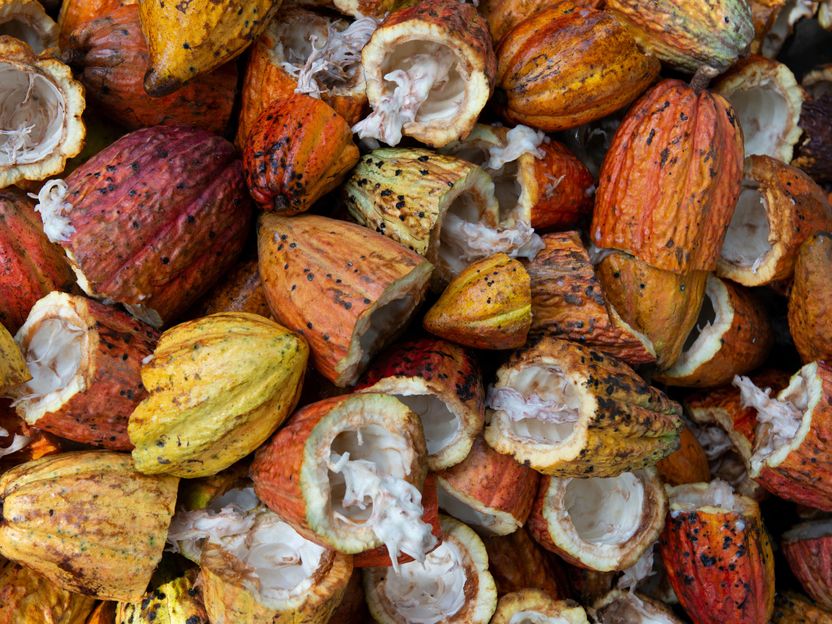A cocoa bean's “fingerprint” could help trace chocolate bars back to their farm of origin, finds a new study
A new study from the University of Surrey has revealed that biotechnology could be the missing ingredient in helping cocoa farmers get a better deal for their beans.
Advertisement
A new study from the University of Surrey has revealed that biotechnology could be the missing ingredient in helping cocoa farmers get a better deal for their beans.

Photo by Rodrigo Flores on Unsplash
Chocolate is a £61billion-per-year global industry that has seen the volatile price of cocoa lead to a surge in traders seeking to buy cheaper beans from deforested regions, with lower quality plants, and human rights abuses. This has affected the prices and practices of legitimate farmers, reducing sustainability gains*.
In the findings, published in the journal Supply Chain Management, the multi-university research team reveal that biomarkers can create “meta-barcodes”, which are like biochemical fingerprints, an unchanging barcode extracted from the plant’s DNA, providing a unique identifier of a plant that is also observed in its beans and subsequent chocolate products. The biomarker of cocoa beans used in chocolate manufacturing could accurately identify the farm, production facility or cooperative where a cocoa product came from.
To make this new process a reality, a controlled data set of biomarkers of registered locations is required for audit. The study goes on to explain that this missing piece -- a biomarker database that identifies the origin of cocoa products, can be built by companies at an estimated cost of £5 per sample – around the cost of a box of chocolates.
Glenn Parry, Professor of Digital Transformation at University of Surrey, said: “The chocolate market has become turbulent, and we have evidence of over 100 years of slavery in the supply chain. Governments and chocolate producers are faced with an ethical challenge and drastically need to improve a trade that is rife with environmental destruction and human misery.
“We have an effective approach for them to make progress. We demonstrate that biomarkers can provide supply chain visibility from the individual farm to the retail chocolate bar. This solution could now be within reach, where the journey of the chocolate in your fridge could be traced back to the cocoa trees where it began.”


































































